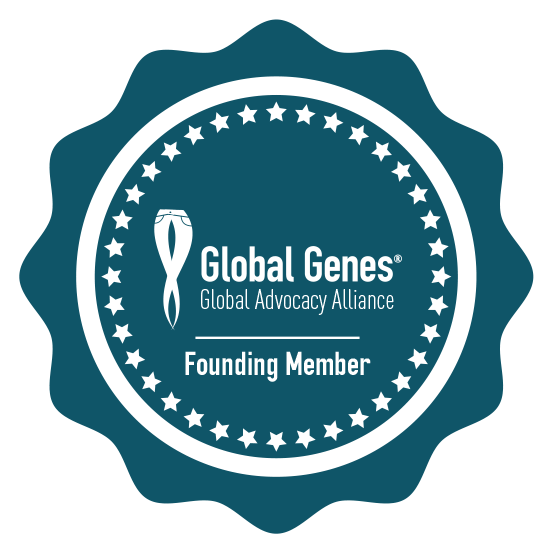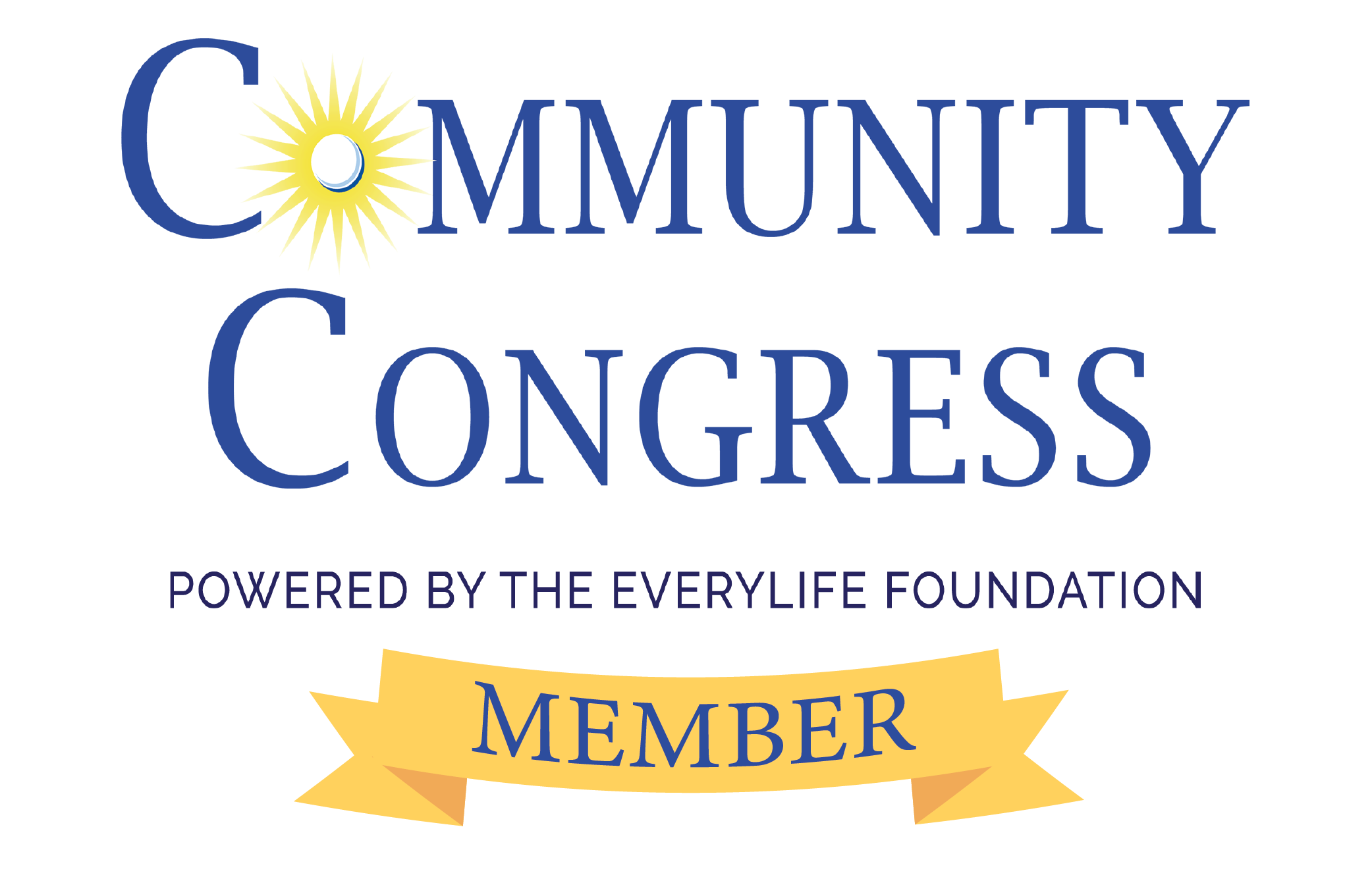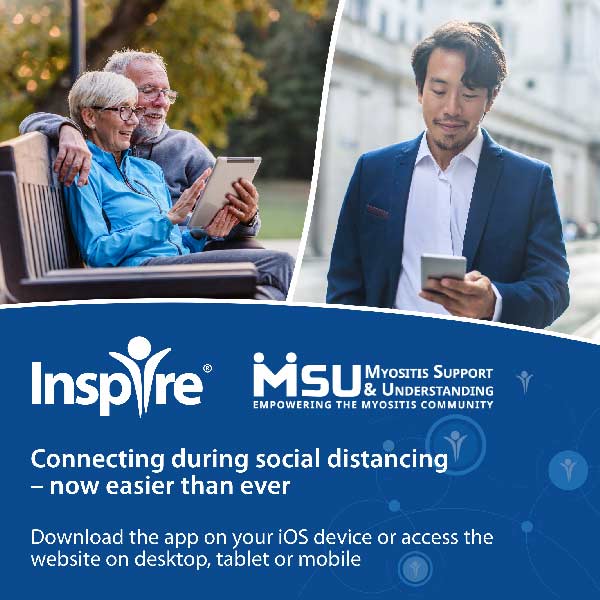Aspiration Pneumonia
One of many potential complications of Myositis, especially for those with dysphagia, or trouble swallowing, is aspirating food, liquid, or even their own secretions into their lungs causing aspiration pneumonia. Myositis can cause the throat muscles to weaken thus making meal times difficult and sometimes dangerous.
Aspiration pneumonia, a complication of pulmonary aspiration, is a lung infection that develops after you aspirate (inhale) food, liquid, saliva, or vomit into your lungs. You can also aspirate food or liquid from your stomach that backs up into your esophagus. If you are not able to cough up the aspirated material, bacteria can grow in your lungs and cause a serious infection.
What increases my risk for aspiration pneumonia?
Your risk is highest if you have an inflammatory myopathy such as Inclusion Body Myositis, Polymyositis, and Dermatomyositis that has caused weakening of your swallowing muscles, dysphagia. You may not be able to swallow or cough well enough to expel aspirated foods and liquids. The following also increase your risk for aspiration pneumonia:
- The muscles that help you swallow are weakened by myositis, stroke, Alzheimer disease, or other diseases
- A weakened immune system caused by medications, diabetes, COPD, heart failure, or other health problems
- Smoking cigarettes
- Use of a feeding tube or ventilator that allows bacteria to travel to your lungs
- Surgery or radiation to treat cancer of the head or neck
- Poor oral hygiene, teeth that are missing, or dentures
Here are some signs and symptoms of aspiration pneumonia
- Fever
- A cough, which may or may not bring up mucus
- Sputum (spit) that is pink or frothy
- Bluish skin around your mouth or your fingertips
- Trouble swallowing
- Shortness of breath, rapid breathing, or noisy breathing
- Chest pain or a rapid heartbeat
- Confusion, fatigue, or changes in alertness
- Voice changes such as gurgling and hoarseness
- Loss of appetite or weight loss
How is aspiration pneumonia diagnosed?
It is common to aspirate but not know it. Your healthcare provider may diagnose aspiration pneumonia if you have symptoms and a history of swallowing problems. He or she will ask about your symptoms and when they started. He or she will look inside your mouth and down your throat, and listen to your heart and lungs. Your healthcare provider will ask you to speak and cough while he or she listens. Tell him or her about any health problems you have and any medicines you use. You may need any of the following tests:
- Blood tests are used to find out if your white blood cell count is high. This can be a sign of infection.
- A barium swallow may show if you have long-term swallowing problems. Your healthcare provider will watch you swallow different foods and liquids. You may be asked to drink a thick liquid called barium while healthcare providers take x-rays of your throat, esophagus, and lungs.
- A sputum culture may be tested for bacteria that can cause pneumonia. Your healthcare provider may ask you to cough mucus into a cup, or he or she may suction mucus from your throat.
- X-ray or CT pictures may show lung damage or an infection, such as swelling and fluid in your lungs. You may be given contrast liquid before the CT scan so your healthcare provider can see the pictures better. Tell your healthcare provider if you have ever had an allergic reaction to contrast liquid.
How is aspiration pneumonia treated?
You may need any of the following:
- Antibiotics are given to treat pneumonia caused by bacteria. You may be given antibiotics as pills or through your IV.
- Steroids are given to reduce swelling in your lungs.
- You may need extra oxygen if your blood oxygen level is lower than it should be. You may get oxygen through a mask placed over your nose and mouth or through small tubes placed in your nostrils. Ask your healthcare provider before you take off the mask or oxygen tubing.
Aspiration Pneumonia is a cause of death for some myositis patients
While pneumonia is a serious infection, it has a relatively low mortality. However, for those with myositis, aspiration pneumonia can cause death. That is why it is so important to ensure you are doing all you can to avoid aspiration. It has an increased potential for sepsis which raises the risk of serious complication or death. Aspiration pneumonitis is a much more serious condition, with a mortality rate of up to 70%.
Aspiration pneumonia is a much more serious condition, with a mortality rate of up to 70%.
Ways to help prevent or manage aspiration pneumonia
Seeing a Speech pathologist for Dysphagia: Aspiration pneumonia prevention
Speech pathologists are trained in swallowing disorders and are able to diagnose dysphagia using a few methods. First, they observe the patient to check for correct posture and oral movements during eating and drinking while also looking at the strength of the muscles involved in swallowing.
Speech pathologists may also order testing such as a modified barium swallow where the patient will eat or drink food that contains barium and then the swallowing process is viewed on X-ray. An endoscopic assessment, a lighted scope is inserted into the nose and then the swallow can be viewed on a screen, may also be ordered to help make a diagnosis and prescribe treatment.
Once diagnosed with dysphagia, a speech pathologist will create a treatment plan that will include helpful information such as exercises to help improve muscle movement, positions and strategies to help make swallowing more effective and safe, and teach about specific food and liquid textures and consistencies to provide the patient with a diet that is easier to swallow and reducing chances of aspirating.
While these tips, exercises, and treatments may be helpful, it is also a good idea to learn the Heimlich maneuver and CPR. You can likely find classes in your area.
As a caregiver/care partner, if you are not able to be home during mealtimes, some tips to make you feel comfortable could include:
- Signing up for a lifeline-type system that can automatically summon EMT’s in the event of an emergency.
- Check with a neighbor or friend to see if they can be there during mealtimes.
- Leave the front door unlocked if you are not going to be with your loved one during mealtimes or have a lock box installed and coordinate with your local EMT’s and Fire Company so they have a way to get in.
While dysphagia can be a serious complication of Myositis, there are many ways to help avoid choking, aspirating, and ways to even strengthen the muscles involved in swallowing. Seeing a speech pathologist is the best, first step!









